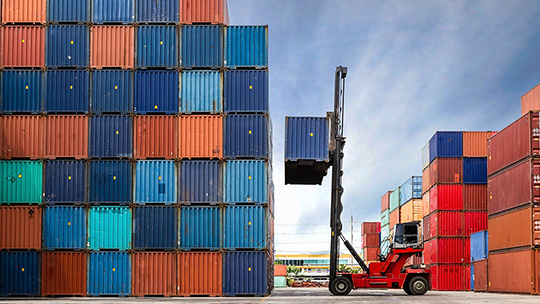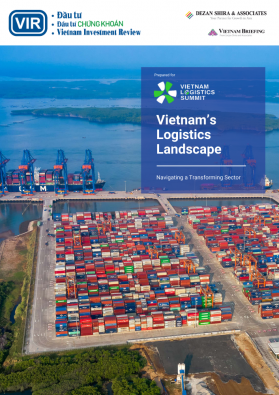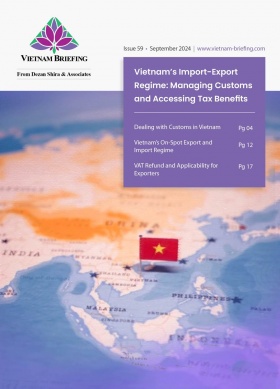Vietnam-UAE Comprehensive Economic Partnership Agreement (CEPA): Key Details
The newly signed Vietnam-UAE Comprehensive Economic Partnership Agreement (CEPA) has been widely welcomed by experts and businesses for its potential to deliver significant benefits across trade and various economic sectors. This article explores the CEPA’s key impacts and its implications for fostering broader cooperation between the Middle East and ASEAN.
Key features of the Vietnam-UAE CEPA
Enhanced FTA standards
While structured as a free trade agreement (FTA), the Vietnam-UAE CEPA incorporates advanced standards and forward-looking provisions, addressing global trends such as digital transformation and sustainable development.
Tariff reductions
The agreement commits both nations to eliminate trade barriers and enhance market access:
- Gradual tariff elimination: The UAE and Vietnam will progressively eliminate tariffs on 99 percent and 98.5 percent of each other’s exports, fostering favorable trade conditions.
- Immediate tariff removal: The UAE will immediately abolish tariffs on several key Vietnamese exports, including:
- Agricultural products: Cashew nuts, pepper, and honey
- Seafood: Shrimp and fish products
- Consumer goods: Textiles, footwear, and electronics
- Wood products: Furniture and construction materials
The CEPA is expected to drive bilateral trade to US$10 billion while unlocking additional trade benefits for both nations.
Strengthened economic collaboration
An entire chapter of the CEPA is dedicated to fostering economic cooperation, with a focus on:
- Tourism
- Transportation
- Financial services
- Manufacturing
- Energy development
This collaboration will be supported through initiatives such as knowledge-sharing events, conferences, delegation exchanges, and formal dialogues.
Enhanced investment opportunities
The CEPA positions Vietnam as a key destination for UAE investments, particularly in processing and manufacturing, high-tech agriculture, and infrastructure development.
- Both nations have pledged to open service markets and ensure greater transparency in government procurement, further facilitating investment exchanges.
Vietnam-UAE bilateral trade
The UAE stands as one of Vietnam’s most critical trade and investment partners in the Middle East, serving as a strategic gateway to Western Asian and African markets. It is Vietnam’s largest export market and second-largest trade partner in Western Asia after Kuwait.
According to data from the General Department of Vietnam Customs (GDC), bilateral trade from 2018 to 2023 averaged approximately US$5 billion annually, with Vietnam enjoying a trade surplus of US$3-4 billion each year. In 2023, two-way trade reached nearly US$4.7 billion, reflecting a 5.9 percent increase year-on-year. Trade during the first eight months of 2024 exceeded US$4.47 billion, representing a 45 percent surge compared to the same period in 2023.
Vietnam’s key exports to the UAE:
- Mobile devices, computers, and electronic components
- Electrical and household electronics
- Pepper and aquatic products
- Footwear and garments
- Plastics and furniture
UAE’s key exports to Vietnam:
- Raw plastics and petroleum-based products
- Liquefied petroleum gas (LPG)
- Animal feed ingredients
- Common metals and chemicals
In the first eight months of 2024, Vietnam’s exports to the UAE rose by 47.5 percent to US$3.85 billion, while UAE imports to Vietnam increased by 32.5 percent to US$623.5 million, highlighting robust trade momentum.
Vietnam-UAE bilateral relationship upgraded to ‘Comprehensive Partnership’
On October 28, 2024, Vietnam and the UAE elevated their bilateral relationship to a Comprehensive Partnership during the Vietnamese Prime Minister’s state visit. As part of this upgrade, the two sides agreed on six key areas of focus:
- Accelerating action programs under the Comprehensive Partnership framework.
- Advancing cooperation in innovation, green transformation, digital transformation, and the circular economy.
- Driving breakthroughs in economic, trade, and investment collaboration.
- Developing the Halal industry and expanding market access for Vietnamese Halal products.
- Strengthening ties in labor, culture, tourism, sports, and people-to-people exchanges.
- Enhancing coordination, consultation, and mutual support on regional and global issues in multilateral forums.
Vietnam – a promising market for UAE businesses
The signing of the CEPA between the UAE and Vietnam has garnered praise from UAE officials, who emphasize the various opportunities this agreement offers for UAE businesses.
Securing supply chains through ASEAN linkages
The UAE government expects the CEPA to bolster industrial exports to Vietnam and the broader ASEAN region, which had an estimated population of 673.02 million in 2022.
UAE Minister of State Ahmed bin Ali Al-Sayegh emphasized that the agreement aligns with the UAE’s foreign trade strategy, which focuses on mutual interest and growth. “Our agreement with Vietnam marks another important milestone in the UAE’s foreign trade strategy, as Vietnam’s robust export economy—especially in textiles and agriculture—aligns with our global connectivity to secure supply chains between East and West. By strengthening relations with Vietnam, we also enhance our connections with ASEAN, a high-growth region that offers numerous opportunities for the private sectors of both countries,” said the minister.
Investment opportunities in energy and infrastructure
The CEPA opens new avenues for investment in critical sectors like energy and infrastructure. Vietnam’s expanding renewable energy sector presents significant opportunities for UAE expertise and investment. In 2023, Vietnam produced 69 percent of ASEAN’s total solar and wind energy, indicating its outsized role in the region’s energy transition efforts.
Sustainable agriculture collaboration
Vietnam and the UAE have committed to joint efforts on climate change, food security, and environmental sustainability. Vietnam’s strong agricultural sector, especially in rice, cashews, coconuts, spices, and dairy, combined with the UAE’s global trade network, strengthens both nations’ efforts to promote sustainable agriculture, optimize food supply chains, and mitigate climate change impacts.
Non-oil exports
The UAE aims to increase its non-oil exports to over AED 800 billion (approx. US$217 billion) by 2031. The CEPA solidifies Vietnam’s position as the UAE’s largest non-oil trading partner in ASEAN, unlocking new opportunities for collaboration in sectors such as food production, apparel, textiles, machinery, and metals. Non-oil bilateral trade surged by 8.7 percent to US$6.1 billion in the first half of 2024, with non-oil exports rising by 58.4 percent compared to the previous year.
Conclusion
The Vietnam-UAE CEPA marks a key juncture in the economic ties between the two nations, offering significant opportunities for collaboration across various sectors. By reducing tariffs and eliminating trade barriers, the CEPA is poised to stimulate robust bilateral trade, while also enhancing market access for both countries. The agreement lays a strong foundation for deepening investment exchanges and fostering cooperation in key areas, such as tourism, manufacturing, and energy development.
As trade relations continue to strengthen, the Vietnam-UAE CEPA presents a strategic opportunity for investors and businesses to accelerate their engagement. By leveraging this agreement, companies can position themselves to gain a competitive advantage and capitalize on the expanding economic landscape between Vietnam and the UAE.
About Us
Vietnam Briefing is published by Asia Briefing, a subsidiary of Dezan Shira & Associates. We produce material for foreign investors throughout Asia, including ASEAN, China, and India. For editorial matters, contact us here and for a complimentary subscription to our products, please click here. For assistance with investments into Vietnam, please contact us at vietnam@dezshira.com or visit us at www.dezshira.com.
Dezan Shira & Associates assists foreign investors throughout Asia from offices across the world, including in Hanoi, Ho Chi Minh City, and Da Nang. We also maintain offices or have alliance partners assisting foreign investors in China, Hong Kong SAR, Dubai (UAE), Indonesia, Singapore, Philippines, Malaysia, Thailand, Bangladesh, Italy, Germany, the United States, and Australia.
- Previous Article Vietnam’s Strategic Push into the Middle East Halal Market
- Next Article Vietnam’s School Education Sector: Foreign Investment Scope and New Regulatory Changes
































